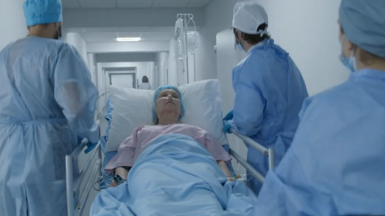Instituto de Salud Carlos III. Centro Nacional de Microbiología - EUPHEM
Contact person
Silvia Herrera León, Supervisor
Ana Alastruey Izquierdo, Co-supervisor
Laura Herrera-León, Epidemiology supervisor
Tel. + 34 91 822 37 00, +34 91 822 37 84
Fax. +34 91 509 79 66
Description of the institute
The Institute of Health Carlos III (ISCIII) was created by law in 1986 (Law 14/1986, 25th of April) and currently depends organically on the Ministry of Science, Innovation and Universities (Royal Decree 865/2018) and functionally on both this and the Ministry of Health, Consumer Affairs and Social Welfare (Royal Decree 1047/2018).
The ISCIII primary mission is the provision of reference scientific services aimed at the National Health System (NHS) and the promotion and implementation of research in Health Sciences in all matters pertaining to health and disease processes, health monitoring, and, particularly, contagious diseases including epidemiological monitoring, diagnostic and control, the study of outbreaks, epidemics, or other infectious, environmental, health emergencies, or non-widespread diseases. The National Centre of Microbiology (CNM) is one of the centres belonging to the ISCIII that provides scientific and technical support to the General State Administration, Autonomous Communities and the National Health System, such as stated in the General Health Law (Law 14/1986, 25th of April) and the Statute of the ISCIII (RD 375/2001, 6th of April and further reform, RD 1672/2009, 6th of November).
The specific role of the CNM/ISCIII is the control of infectious diseases for what it offers diagnostic and reference services, while maintaining research programmes, both basic and application-oriented, related to the prevention, diagnosis and treatment of these diseases. In addition, the Centre has scientific and technical common units that perform activities on veterinary, genomics, bioinformatics, flow cytometry, histology, electron microscopy, confocal microscopy and structural proteomics, working with the units and services of the different functional areas. There are also several units which support directly the activities of the Centre's direction such as: Quality Management, Biosecurity and Scientific-Technical-Support. Of note is the existence of a biosafety level 3 (BSL3) laboratory.
The main public health programmes are:
- Emerging and vector-borne diseases
- Healthcare associated infections
- Antimicrobial resistance
- Gastrointestinal and foodborne infections
- Sexually transmitted infections
- Influenza and other respiratory diseases
- Vaccine preventable diseases
The main public health core-functions are:
- Surveillance of microbiological infections
- Microbiological Surveillance of vaccine preventable diseases
- Investigation and control of communicable disease
- Public health microbiological research
- Teaching and training in public health microbiology
Training opportunities
Based on the fellow's previous experience and interest, appropriate projects and training activities on bacteriology, virology, mycology or parasitology are arranged to fulfil the EUPHEM core competencies. A close collaboration, based mainly in the development of common projects, is established with the National Centre of Epidemiology (CNE) to ensure the epidemiological supervision. The EUPHEM fellow will have opportunities to participate in all the main activities carried out by the Centre in addition to collaborations with other national/international centres/agencies where appropriate.
Training supervision
The EUPHEM fellow will be supervised by the EUPHEM ISCIII main and co-supervisor and the epidemiology supervisor all based in Majadahonda for the period of his/her training. For specific projects or activities the fellow will be supervised by the appropriate scientists from the National Centre for Microbiology and the National Centre for Epidemiology.
Language requirements
Language requirements English. Some knowledge of Spanish or alternatively French, Italian or Portuguese, would be welcome.
Training History
Number of EUPHEM fellows trained at institute:
- Three EU-track fellows graduated: Cohort 4 (2011-2012); cohort 2013 (2013-2015), cohort 2015 (2015-2017). Their training programmes/portfolios are featured on the ECDC website.
- One MS-track fellow graduated: Cohort 2014 (2014-2016)
- One EU-track fellow is currently in training: Cohort 2019 (2019-2021)




